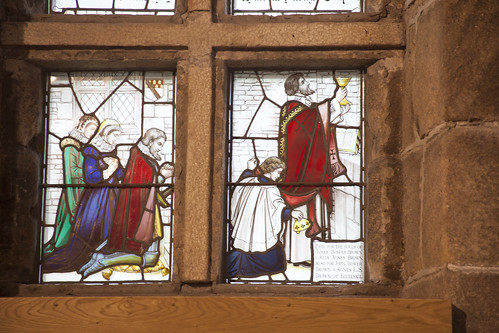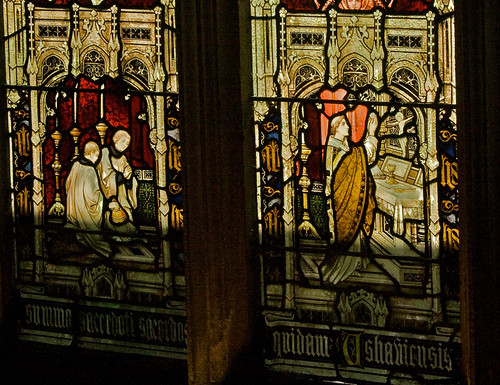On June 30 1988, 25 years ago this week, Archbishop Lefebvre carried out episcopal consecrations (to use the traditional term for the ordination of bishops), of four priests of the Society of St Pius X, which he had founded. He did so without the permission of the Holy See, facing the prospect of his own death (which occurred less than three years later), to ensure the continuity of the SSPX, dedicated to opposing what he saw as modern theological errors, and preserving the Traditional Latin Mass. The cluster of events of which this was the centre – the negotiations between the archbishop and Cardinal Ratzinger, later to become Benedict XVI, and their failure; the subsequent excommunication of the archbishop and his four new bishops; the apostolic letter of Pope John Paul II, Ecclesia Dei adflicta; the reconciliation to Rome of individuals and groups formerly aligned with the SSPX – may together be described as a turning point for the post-conciliar Church, whose consequences continue to play out today.
The Novus Ordo Missae, the post-Vatican II Mass, celebrated almost always in the vernacular, was promulgated, after a transitional period, in late 1969, and it was widely assumed that, apart from older priests saying Mass in private, the use of the older liturgical books was thenceforth forbidden. At the request of the Latin Mass Society and Cardinal Heenan, Pope Paul VI signed an indult (permission) for the “Old Mass” for England and Wales in 1971. In 1984 Pope John Paul II issued an indult for the whole world. Nevertheless, the dominant attitude among those in authority in the Church was well summarised by Cardinal Ratzinger, when he wrote: “Anyone who nowadays advocates the continuing existence of this liturgy or takes part in it is treated like a leper; all tolerance ends here.”
 |
| Window of Padley Chapel, Derbyshire, showing Mass said by a martyr-priest of the 16th century |
It has become a common theme among a new generation of theologians, led by Benedict XVI, that on a series of points the Traditional Mass is an important corrective to problematic modern theological tendencies. Celebration ad orientem (with the priest facing the same way as the people), Latin and Chant, the silent Canon, the ancient prayers of the Missal, the reception of Communion on the tongue: all demonstrate theological principles sorely needed by the Church today.
 |
| Window of the chapel of the former seminary at Ushaw, showing tonsured Medieval priest in Gothic vestments celebrating Mass |
After 1988 it has been impossible to interpret the official attitude of the Vatican towards the ancient Mass as a temporary toleration for the sake of the older generation. The Holy See does not authorise religious orders and communities with the hope or expectation that they will fade away and die. As things have turned out, these groups have grown quickly since 1988, and from a standing start now comprise more than 600 priests worldwide. This growth has meant that a new appreciation of the riches of the ancient Mass has been brought to one diocese after another as traditionalist apostolates have established themselves around the globe.
 |
| Low Mass at the LMS Training Conference in Ratcliffe College, Leicestershire. We're just doing what our forfathers did. |
This gesture of Pope Benedict was part of a renewed effort towards the Society of St Pius X, which also included the lifting of the excommunications on the four bishops consecrated in 1988, and doctrinal discussions between the SSPX and the Vatican. These have again, for the time being, failed to bring about the reconciliation Pope Benedict desired. The motu proprio does, nevertheless, represent another step in the healing of a cultural and theological schism with the past, which may be a necessary precondition for a healing of differences in the present.
Dr Joseph Shaw is chairman of the Latin Mass Society
------ Ends
I encourage readers to follow the link to the Fontgombault talk of Cardinal Ratzinger: it is the most theologically forthright discussion of the importance of the EF that he wrote, that I know of.

Joe,
ReplyDeletePerhaps their banner headline was deliberately incorrect. JPII's 1998 motu proprio "Ecclesia Dei" did then, and continues today, to cause a lot of trouble - to the liberal wing of the church. Word-plays within plays here?
Nanook of the north.
Hello Joseph,
ReplyDeleteNot a bad piece - and certainly an improvement of whatever else might have been written by someone else.
Two quibbles I might make:
1) By making the focus of the piece overwhelmingly liturgical, it risks allowing less informed readers to miss that the legacy of division accentuated by 1988 (but begun in the 60's) goes much deeper than liturgy. Indeed, if it were only about the Mass, the SSPX would be reconciled by now (or most of it would). And such concerns about theological ruptures are, of course, shared in various ways and to varying degrees by many traditionalists well beyond the Society's boundaries, and even some traditional-leaning conservatives besides.
None of which diminishes, of course, the importance of Summorum Pontificum, and the reconnection with its own tradition that it makes possible for the wider Church.
2. "To a large extent the FSSP, founded by priests of the SSPX who repudiated Archbishop Lefebvre’s defiance of the Holy See, was able to adopt the deal which Lefebvre had negotiated and then rejected." SSPX adherents never shy away from pointing out the one aspect of the deal with Archbp. Lefebvre that the FSSP priests did *not* obtain - their own bishop. Something which, of course, we would all like to see happen before too long.
But it's also true that the value of having one's own bishop can be overstated, too.
An impressively fair-minded article.
ReplyDelete